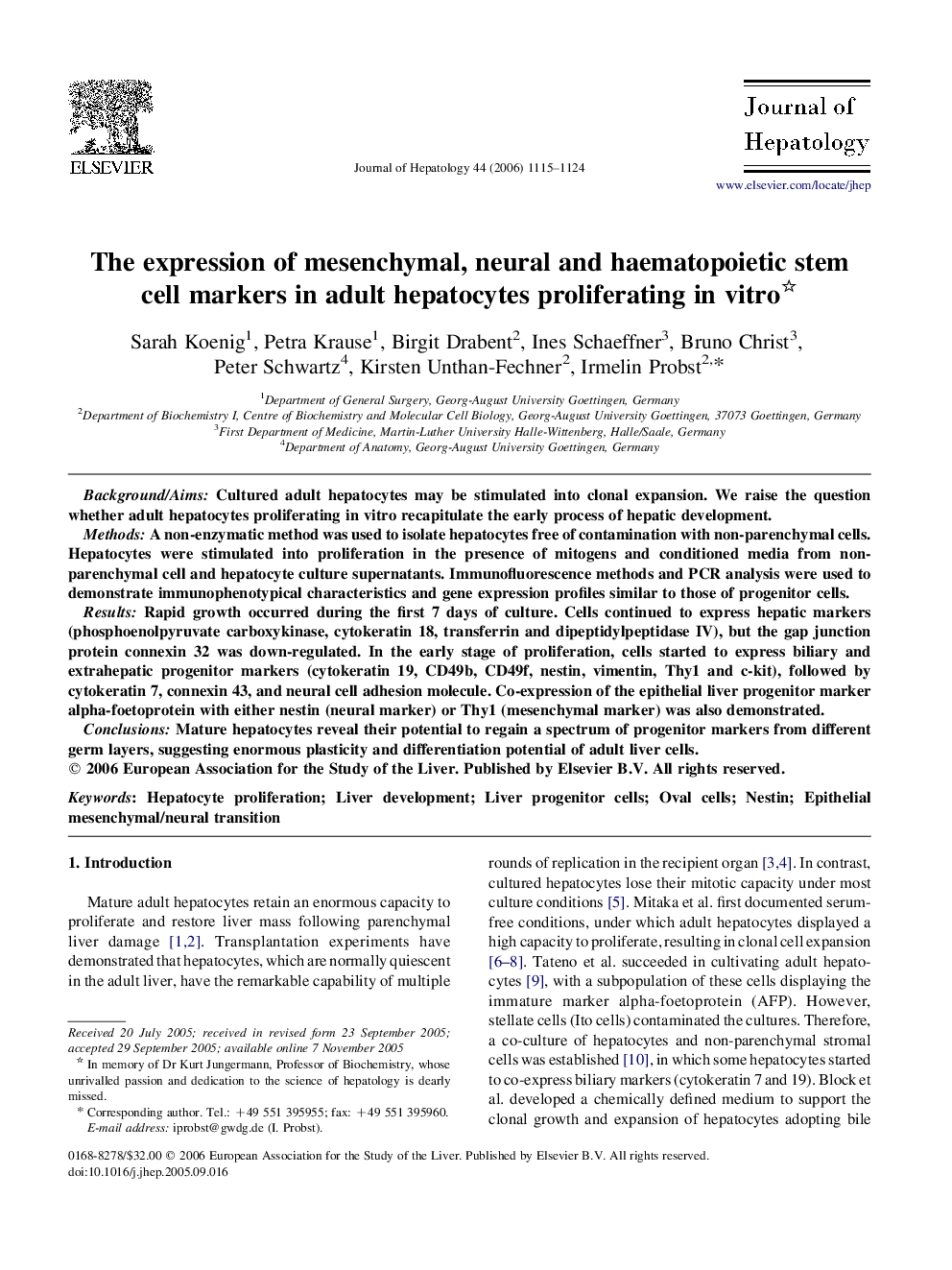| Article ID | Journal | Published Year | Pages | File Type |
|---|---|---|---|---|
| 3315622 | Journal of Hepatology | 2006 | 10 Pages |
Background/Aims: Cultured adult hepatocytes may be stimulated into clonal expansion. We raise the question whether adult hepatocytes proliferating in vitro recapitulate the early process of hepatic development.Methods: A non-enzymatic method was used to isolate hepatocytes free of contamination with non-parenchymal cells. Hepatocytes were stimulated into proliferation in the presence of mitogens and conditioned media from non-parenchymal cell and hepatocyte culture supernatants. Immunofluorescence methods and PCR analysis were used to demonstrate immunophenotypical characteristics and gene expression profiles similar to those of progenitor cells.Results: Rapid growth occurred during the first 7 days of culture. Cells continued to express hepatic markers (phosphoenolpyruvate carboxykinase, cytokeratin 18, transferrin and dipeptidylpeptidase IV), but the gap junction protein connexin 32 was down-regulated. In the early stage of proliferation, cells started to express biliary and extrahepatic progenitor markers (cytokeratin 19, CD49b, CD49f, nestin, vimentin, Thy1 and c-kit), followed by cytokeratin 7, connexin 43, and neural cell adhesion molecule. Co-expression of the epithelial liver progenitor marker alpha-foetoprotein with either nestin (neural marker) or Thy1 (mesenchymal marker) was also demonstrated.Conclusions: Mature hepatocytes reveal their potential to regain a spectrum of progenitor markers from different germ layers, suggesting enormous plasticity and differentiation potential of adult liver cells.
